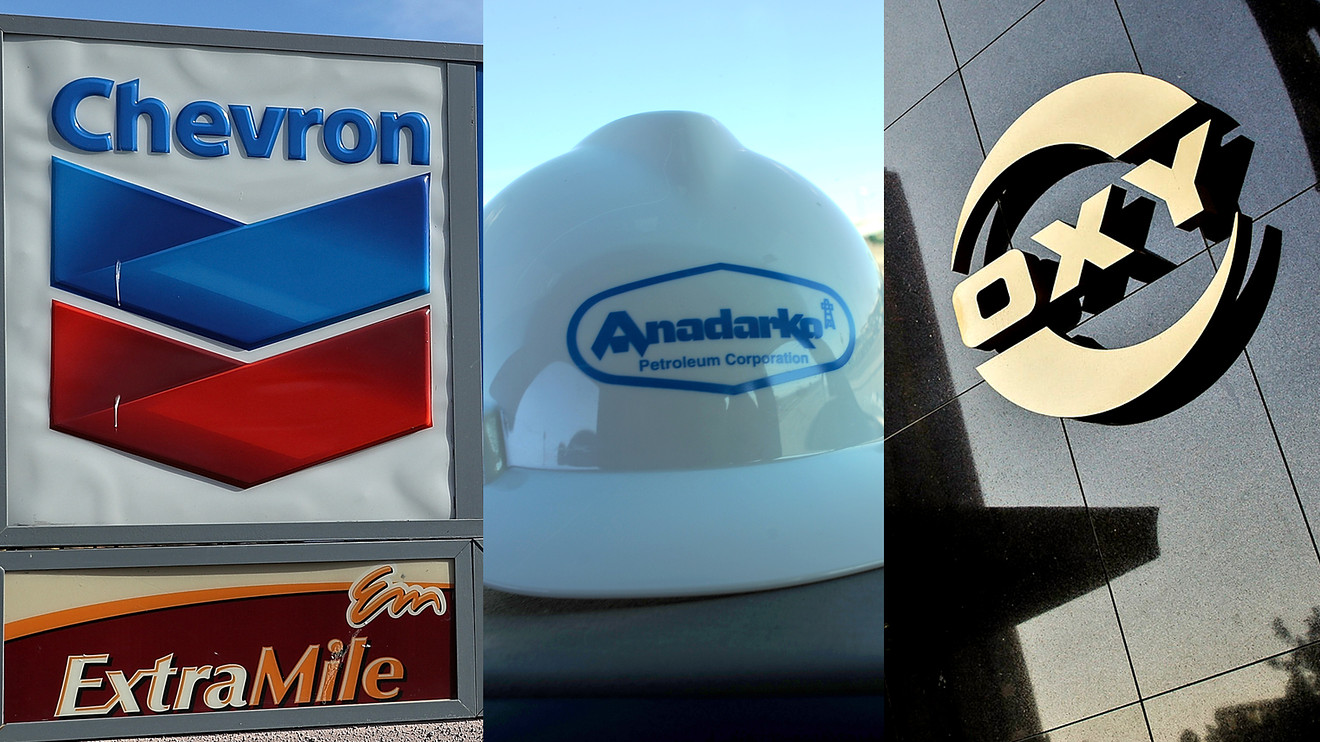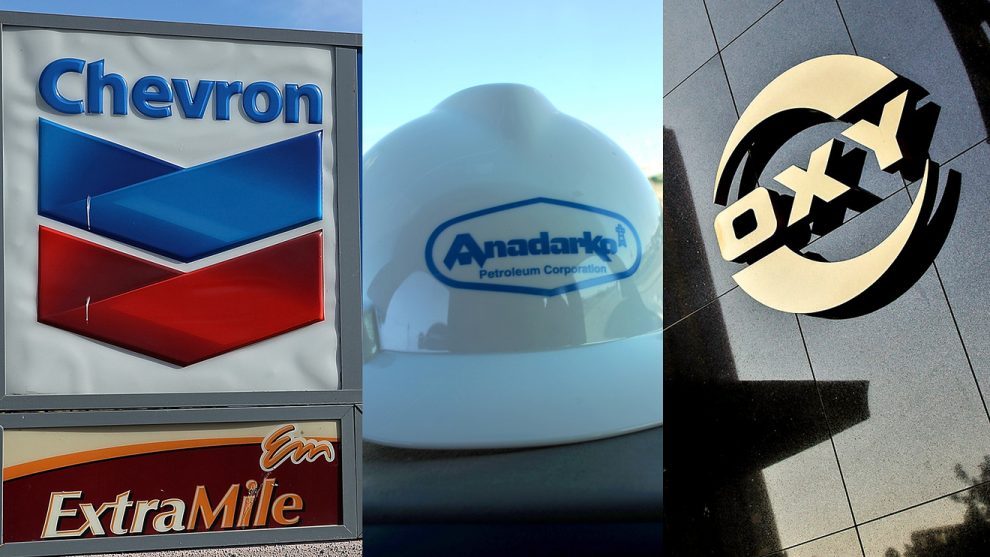
Activist investor Carl Icahn has complained that Occidental Petroleum Corp.’s deal for Anadarko Petroleum Corp. was too rich, pointing at interference from Berkshire Hathaway Inc.’s Warren Buffett and a competing bid from Chevron Corp.
Icahn may be right about the deal, but academic research points to a different potential factor that Icahn has not identified. Occidental OXY, -1.52% and Anadarko APC, -0.26% share the same audit firms, and those auditors share an office.
Companies typically turn to investment banks and law firms for advice about acquisitions. Less well known is that company auditors will know more about target company assets and liabilities than bankers and lawyers and may take sides in both friendly and hostile bids.
With only four large global audit firms following the demise of Enron auditor Arthur Andersen in 2002, it’s become quite common for the same audit firm to show up on both sides of an M&A transaction. A 2015 academic study says that can generate conflicts of interest that may mean a smaller premium for the target but almost always means the auditor may pick the winner and provide an information edge to that company.
For example, Verizon Communications VZ, -1.29% acquired AOL in 2015 and not only shared the same audit firm, Ernst & Young, or EY as the firm now likes to be called, but their respective audits were performed by the same office in New York. Verizon Communications offered to pay $50 per share for AOL on May 12, 2015, a 28% premium over the average price for the last 20 trading days — but that fell far short of the premium of 46% that is typical, according to the academic study, Shared Auditors in Mergers and Acquisitions, published in the Journal of Accounting and Economics in 2015.
For more: Why Dell may have got a bargain with EMC
The researchers —Dan S. Dhaliwal of the University of Arizona; Lubomir P. Litov, now of the University of Oklahoma; Phillip T. Lamoreaux of Arizona State University; and Jordan B. Neyland now at George Mason Law School—hypothesize that shared auditors “facilitate the flow of information between bidders and targets.”
The research provides evidence that a conflict of interest can occur when parties share an audit firm during an M&A transaction that favors acquirers at the expense of the targets, which tend to be smaller audit clients. The auditor prioritizes its own self-interest when deciding which client to support in an M&A transaction.
The impact of this potential conflict is strongest when both audits are serviced from the same office, as is the case for Occidental and Anadarko. Occidental’s audit opinion is signed by Jeffry Scot Andrews and Anadarko’s is signed by Joel Andrew Smith, both from KPMG LLP’s Houston office. Rance Lee Buss, a partner at audit firm Weaver and Tidwell LLP, signs both Occidental’s and Anadarko’s retirement plan audit opinions.
Also read: When acquirer and target in M&A talks share an auditor, purchase price can suffer
See also: Uber received more scrutiny from the SEC than Lyft during the IPO process
KPMG declined to respond to a request for comment, citing client confidentiality constraints. Rance Lee Buss did not respond to a request for comment.
When bidders share auditors who share offices with their targets’ auditors, as Occidental and Anadarko do, bidders are likely to gain superior acquisition-related information about their targets and also to see bidding competition disappear. Bidders may gain that information advantage relative to competing bidders as a result of formal or informal assistance of auditors. They can leverage this advantage into a better bargaining position with the target. Other potential bidders have less information and less incentive to bid or counterbid.
Specifically, the researchers say that the audit team at the target may be more forthcoming in the due diligence process, more willing to disclose information when acquirer and target share an auditor, since they are just talking to co-workers who also audit the acquiring company and who they may also see or socialize with on a day-to-day basis.
Reduced bid competition could give a bidder more negotiating power, thereby reducing the premium paid or, such as in the Occidental case, potentially increasing confidence in the wisdom of an aggressive or hostile bid or one with unusual terms.
Investors can find out which audit firm and which office of that firm is responsible for the company’s annual audit by looking at the auditor’s opinion included in the company’s 10-K filing with the SEC. And now, since January 31, 2017, investors are also able to learn the name of the partner who signed the audit report and, since June 30, 2017, can identify any other audit firms that significantly participated in the audit. That information is available based on a new form filed annually by the audit firms, Form AP, searchable at the website of the audit firm regulator, the Public Company Accounting Oversight Board.
A spokeswoman for Occidental Petroleum declined to comment. Anadarko’s media office did not respond to a request for comment.
Occidental is offering to buy Anadarko for about $73.46 a share, a 57% premium over the stock’s closing stock price on April 11, the day before Anadarko said it had a merger agreement with Chevron Corp. The deal would be paid for 78% in cash and 22% in stock.
Icahn reportedly didn’t like the aggressive deal Occidental made to defeat an earlier offer by much larger competitor Chevron CVX, -0.17%, which is audited by PricewaterhouseCoopers LLP. Occidental will use $10 billion borrowed from Warren Buffett to increase the cash portion of the bid. In exchange for the cash Buffett gets preferred shares that Icahn complained pay too high an interest rate, at 8%.
The restructuring of the deal from an earlier bid of 50-50 cash-and-stock means Occidental avoided a shareholder vote. That generated objections from other investors such as T. Rowe Price, which owns shares in all three companies. Anadarko shareholders will vote on the deal on Aug. 8.
Occidental has already announced it would sell Anadarko’s African assets to French oil major Total for $8.8 billion to work toward its goal of divesting $10 billion to $15 billion in assets as part of the acquisition. That shows Occidental has significant confidence in its assessment of where the value and potential of Anadarko’s assets lies.
Occidental shares have fallen 15% in 2019, while Anadarko has gained 69%. The S&P 500 SPX, +0.09% has gained 20% and the Dow Jones Industrial Average DJIA, +0.07% has gained 17%.











Add Comment